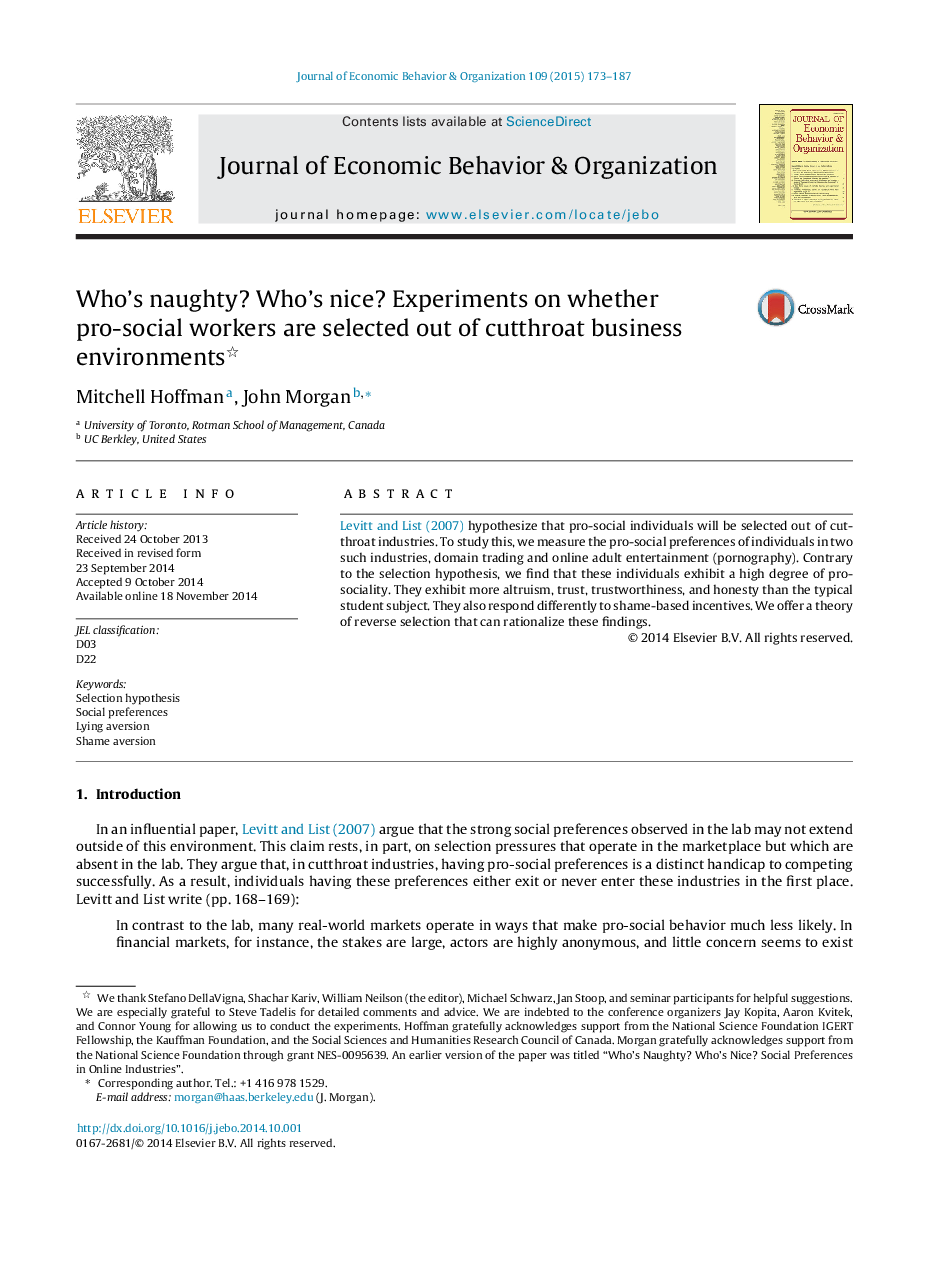| Article ID | Journal | Published Year | Pages | File Type |
|---|---|---|---|---|
| 883492 | Journal of Economic Behavior & Organization | 2015 | 15 Pages |
•Levitt and List (2007) conjecture that selection pressures among business people will reduce or eliminate pro-social choices.•To examine this hypothesis directly, we selected two cutthroat industries.•We conduct a battery of social preference experiments on business people and students.•Business people are more pro-social than students: they are more altruistic, trusting, trustworthy, and lying averse, and they respond differently to shame incentives.•Experiments in different venues confirm that business people/student differences are not solely driven by venue effects.•We offer a theory of reverse selection that explains our results.
Levitt and List (2007) hypothesize that pro-social individuals will be selected out of cutthroat industries. To study this, we measure the pro-social preferences of individuals in two such industries, domain trading and online adult entertainment (pornography). Contrary to the selection hypothesis, we find that these individuals exhibit a high degree of pro-sociality. They exhibit more altruism, trust, trustworthiness, and honesty than the typical student subject. They also respond differently to shame-based incentives. We offer a theory of reverse selection that can rationalize these findings.
